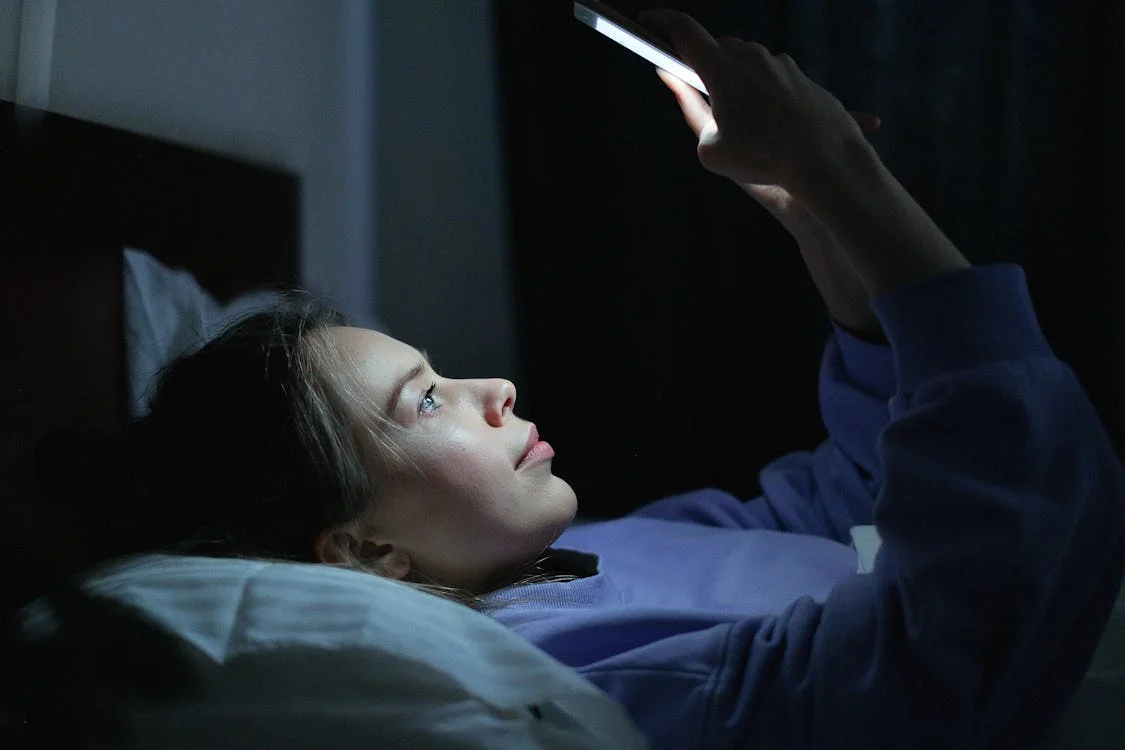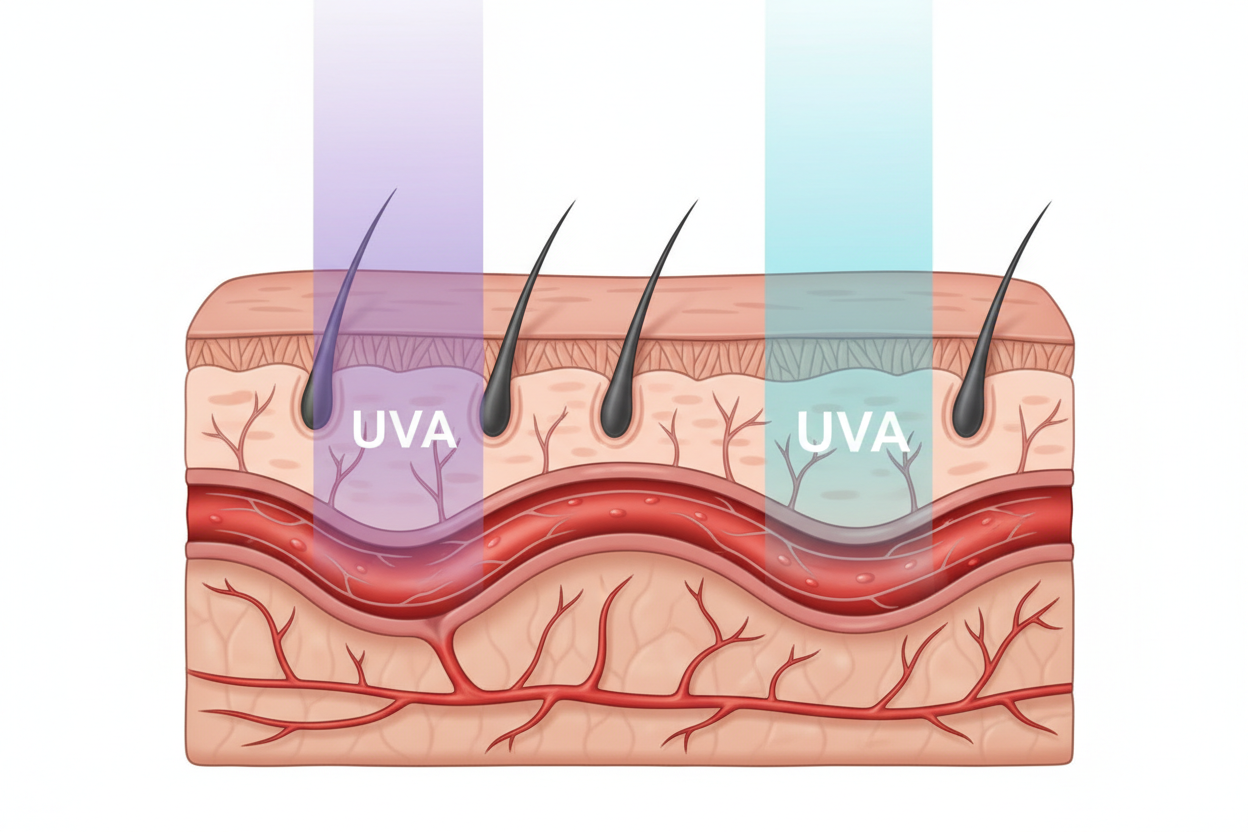Blue light, which is a common component of light from screens as well as morning sunlight, has a significant impact on our body by stimulating the production of ACTH (adrenocorticotropic hormone). This hormone subsequently increases cortisol levels, which leads to an increase in blood glucose levels. But did you know that at dawn, UV radiation is added to the blue and red light? UV radiation has the ability to break down cortisol and lower blood sugar levels. This effect can even be observed on your hair!
Negative effects of excessive cortisol
Lack of sunlight and excess blue light can lead to chronically high cortisol levels, which has a number of negative consequences for our health:
• Anxiety and depression: High cortisol levels are associated with increased rates of anxiety and depressive states.
• Weight gain and diabetes: Cortisol directly affects glucose metabolism and can
contribute to weight gain and the development of type 2 diabetes.
•
Acne and thin skin: Hormonal imbalance caused by cortisol can lead to
problems with the skin, such as acne or thinning of the skin.
•
Bone weakening: Long-term high levels of this hormone can cause
weakening of bone mass and increase the risk of osteoporosis.
• Thinning and graying of hair: Cortisol can affect the quality and pigmentation of hair, leading to to their thinning and graying.
• Insomnia: Hormonal changes can disrupt sleep cycles, leading to problems with insomnia.
Role of UV Light
Adding UV light to blue and red light in the morning, however, has positive effects by helping to break down excess cortisol. This results in lower blood sugar levels and may help mitigate some of the aforementioned health issues.
This knowledge emphasizes the importance of natural daylight for our health and shows why we should limit exposure to artificial light, especially in the evening hours when the body needs to regenerate and naturally reduce cortisol levels. Adequate exposure to UV light, especially in the morning hours, can be one of the keys to better health and balanced hormone levels.





Leave a comment
This site is protected by hCaptcha and the hCaptcha Privacy Policy and Terms of Service apply.